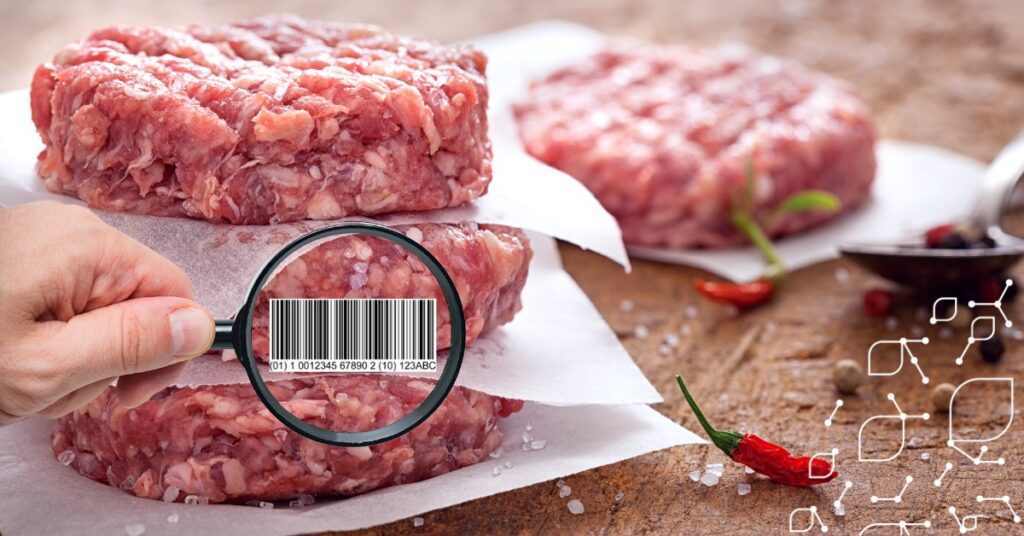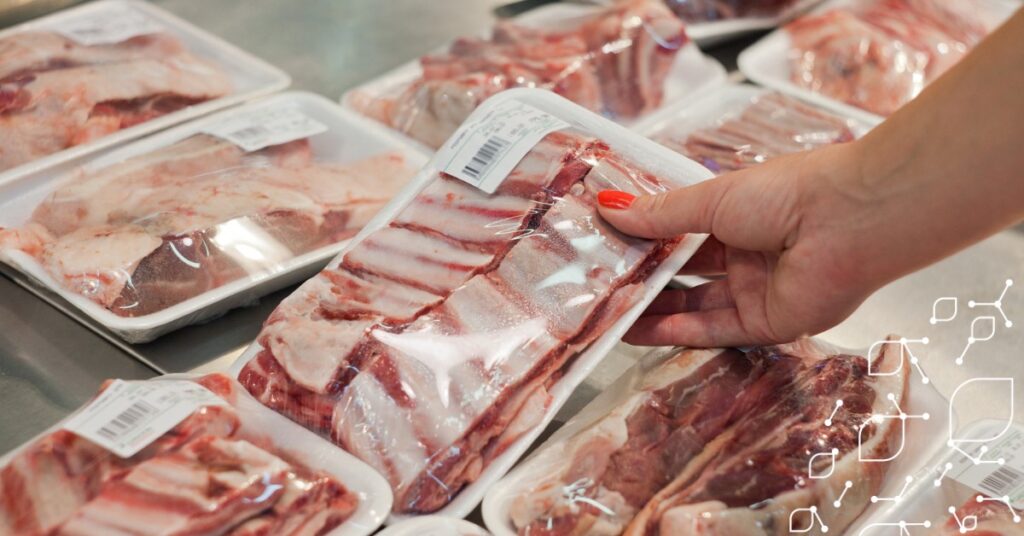
For all grocery retailers, ensuring the safety and quality of fresh products on store shelves is paramount. When unexpected issues arise, necessitating a recall, rapid and efficient action is essential to maintain consumer trust. The Food Safety Modernization Act (FSMA) in the United States sets rigorous standards for food safety, and automation technology plays a pivotal role in streamlining food traceability and recall processes in the industry.
The Role of Fresh Grocery Automation
The FSMA places a significant emphasis on food traceability and record-keeping. Automation ensures grocery retailers maintain compliance by having accurate records readily available for inspections.
Fresh grocery automation systems, including advanced product traceability software and cutting-edge barcoding technology, empower retailers to identify affected products during recalls quickly. This agility is crucial in preventing potentially unsafe products from reaching consumers.
Automation systems continuously monitor factors like temperature, humidity, and product freshness. When deviations from acceptable standards occur, alerts are triggered. This early detection allows retailers to address quality issues before they escalate into recalls, saving time and resources.
Automation guarantees the precision and consistency of data related to recalled products. Manual record-keeping is error-prone and can hinder recall efforts, jeopardizing food safety. Effective communication of information to various stakeholders, such as suppliers, distributors, and consumers, is paramount during a recall. Automation facilitates the smooth sharing of data, reducing the risk of miscommunication.
Automation reduces the risk of human error, a critical factor in fresh grocery automation and traceability. Automated systems handle data entry and analysis, minimizing costly mistakes. Automated monitoring systems provide real-time data on inventory levels, enabling retailers to remove affected products from shelves and track their disposition promptly.
Challenges Without Fresh Grocery Automation
Without the integration of fresh grocery automation, the grocery industry’s food traceability and recall process would be significantly more complex and time-consuming. Manual methods would involve:
Labor-intensive Record-keeping:
Maintaining records of product shipments, batch numbers, and expiration dates is time-consuming and susceptible to errors.
Delayed Identification:
Identifying affected products might take days or weeks, increasing consumer risks and damaging a retailer’s reputation.
Inefficient Communication:
Coordinating with suppliers and distributors manually can lead to communication breakdowns and delays in executing recalls.
Compliance Hurdles:
Meeting FSMA requirements without automation would require substantial resources and staffing, making compliance a daunting task.
Reducing Waste through Precision Recalls

Food recalls are critical to food safety, but they can be costly and environmentally damaging due to the potential waste they generate. Fresh grocery automation is instrumental in mitigating the impact of recalls and, in doing so, plays a significant role in reducing food waste.
One of the key benefits of automation systems is their ability to continuously monitor factors like temperature, humidity, and product freshness. When deviations from acceptable standards occur, alerts are triggered. This early detection allows retailers to address quality issues before they escalate into recalls. Automation minimizes waste and reduces the environmental footprint associated with recall-related discards by intervening promptly and preventing the distribution of potentially compromised products.
In the unfortunate event that a recall is necessary, automation enables retailers to pinpoint affected products with remarkable precision. This targeted approach reduces the scope of the recall, ensuring that only the affected items are removed from circulation. By minimizing the number of products pulled from the shelves, automation helps prevent unnecessary waste and disposing of unaffected items.
By connecting the dots between food recalls and food waste reduction, it becomes clear that fresh grocery automation is a tool for enhancing food safety and an essential contributor to responsible and sustainable practices in the grocery industry. This synergy between safety and sustainability is crucial in today’s conscientious consumer landscape, where reducing waste and environmental impact are top priorities.
End-of-Life Management: A Sustainable Approach to Recalls
While fresh grocery automation plays a crucial role in mitigating recalls and reducing food waste, it also contributes to sustainable end-of-life management:
End-of-Life Management
When products have reached the end of their shelf life, automation systems offer a sustainable solution. These systems enable controlled spoilage, marking products as unsellable while finding alternative purposes. Instead of being discarded as waste, these products can be repurposed for composting or animal feed. This approach minimizes environmental impact and ensures that even at the end of their life cycle, products can serve a valuable purpose.
Recycling and Sustainable Disposal
Automation extends its sustainability benefits to recycling and disposal. It assists in efficiently sorting and directing materials, such as packaging, toward recycling and sustainable disposal channels. Automated systems can optimize the recycling process, ensuring that materials are reused, reducing the need for additional raw resources, and promoting a circular economy. This reduces waste and lessens the environmental burden associated with traditional disposal methods.
By integrating end-of-life management practices into fresh grocery automation, retailers enhance their sustainability initiatives and demonstrate a commitment to responsible environmental stewardship. This holistic approach further emphasizes the synergy between safety, sustainability, and waste reduction in the grocery industry.
A Holistic Approach
Fresh grocery automation is revolutionizing how grocery retailers manage food traceability and recalls. It streamlines processes, minimizes the risk of errors, and ensures swift, efficient actions to protect consumers and uphold stringent industry standards like the FSMA. Embracing fresh grocery automation is not just a matter of convenience; it’s a fundamental step toward preserving public health and maintaining trust in the grocery industry.
When integrated with comprehensive waste reduction and end-of-life management strategies, fresh grocery automation presents an opportunity for retailers to streamline operations and contribute positively to environmental sustainability. It’s a win-win scenario where retailers can reduce waste, cut costs, and enhance their environmental footprint.
By adopting a holistic approach that encompasses the entire lifecycle of products, from procurement to disposal, grocery retailers can leverage automation to promote sustainability, reduce food waste, and improve their overall operational efficiency. This approach aligns with evolving consumer expectations for responsible and eco-conscious business practices, further enhancing the reputation and success of the grocery industry.







